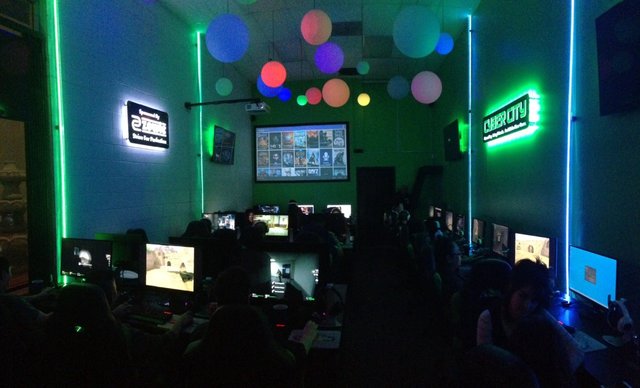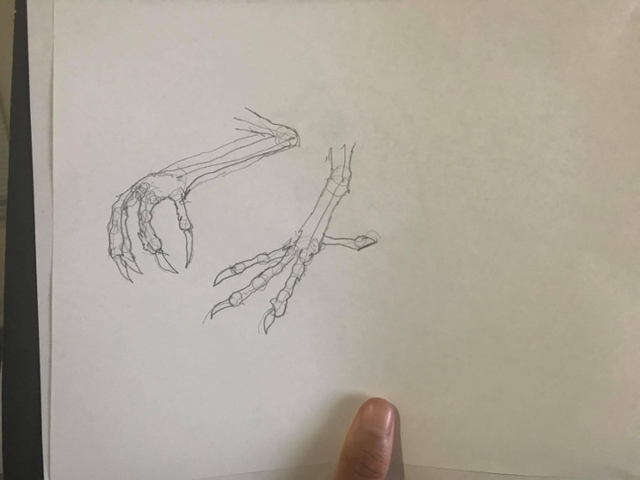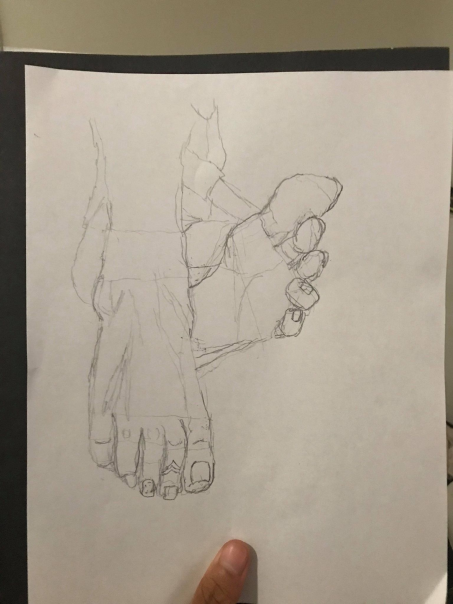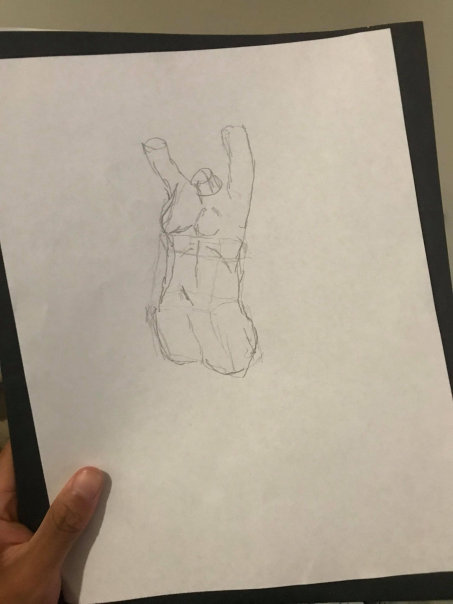
Cyber City eSports Center
This may be a bit messy but I tried to include the important points of my journey throughout the last decade. I realized as I was writing this out that I will likely make many specific articles on certain aspects of quitting competitive gaming due to the many details involved.

Competitive gaming can appear to be an escape from a mundane or depressing life.
Competitive gaming initially helped me escape depression and find purpose during a difficult time in my life. As I progressed through high school, I went through various periods of isolation, mental illness, and suicidal ideations. These feelings culminated strongly when I graduated high school, as I shifted into a lifestyle that I wasn’t ready for, with college and many unanswered questions ahead. My understanding of the world was poor at the time and I often saw it as an unjust place where I was trapped by the wants of my parents, the education system, and society at large. At the start of 2012, I was going through a long period where everything seemed to lack meaning. I was suffering from severe skin problems and having difficulties in my classes, most of the time completely skipping them. Around February of this time, I discovered League of Legends. While I had initially planned to play Starcraft II, the team-aspect and community surrounding League of Legends immediately immersed me, causing me to dedicate immense amounts of time to the game.
Competitive gaming offered a few unique positives that I viewed as reasons to pursue the activity. They were a place where people of any background could be of equal standing based on their mental ability. There was a unified culture that people from all around the world could relate to through art, strategy, and music. Some positives from the time I played League of Legends include the various aspects outside the game I discovered from meeting people, such as EDM music I ended up finding because other players or streamers were listeners of it.
In the early stages of playing, it seemed like there was constantly more to explore and learn on League of Legends. Learning a new champion was very fulfilling and I kept very close track of updates to the gameplay, art, and story. During Season 2, eSports was at a higher height than ever before with League of Legends. Me and many friends closely followed TSM and other top teams such as CLG and Curse, when the competitive scene was still largely affiliated with North America.

I was raised in the suburbs of Plano, TX. From early on it always felt like something was missing in this setting. Competitive gaming was how I attempted to cope with things I couldn’t understand.
I was raised in the suburbs of Plano, TX. From early on it always felt like something was missing in this setting. Competitive gaming was how I attempted to cope with things I couldn’t understand.
I believe that League of Legends appealed so much to me at the time for the following reasons:
- At the time I lived in the suburbs which I felt to be extremely boring or isolating, though I didn’t know exactly why at the time. Gaming was a way to add excitement to the monotony and a way to be constantly involved in a worldwide phenomenon.
- I had hated almost every job I had and thought that almost all of them would be something that I couldn’t do. The dream I had of being a high level competitive gamer seemed like something that was meant for me to explore at the time.
- I had grown up with poor social skills and often felt rejected by my family and in the school setting. League of Legends seemed to be the place where I could actually be someone important. I noticed that people who would have formerly ignored me had respected me more when I was achieving a high rank. I believed that if I continued on the path I could be someone truly inspirational.

I had found great job opportunities in the startup communities on the vibrant west side of Los Angeles. However, my focus on League of Legends prevented me from achieving success in the industry.
In 2013, poor school performance and deteriorating relations with my parents led to me moving to Los Angeles. I had great opportunities in software development set up for me but unfortunately I looked at them to side aspects that I needed to get out of the way in order to play League of Legends. Even though my friends had helped set me up with high paying jobs with amazing settings to work and live in, I was unable at the time to realize how great these opportunities actually were. As a result I would rarely have a job for more than a few months at a time.
Eventually I stopped doing most work entirely, and my parents had to support me so that I could cover most of my living costs. Despite the ability to live a prosperous life if I attempted to apply myself, I instead focused on what I thought to be the only option, continuing to play League of Legends with dreams of pursuing a career in it.

During Season 6, I spent most of my waking hours on League of Legends. This was when I felt most immersed and fulfilled in the game, but following this year my doubts of playing would begin.
During 2014–2016 I peaked in time played, with as many as 12 games in a day at times. I felt fully immersed in the game, with constant friends to connect to, and fulfillment from learning and improving. Despite playing for up to 10–12 hours a day at times, I was still far away from being a pro player. However, I felt motivated to learn and consume the game’s content, being ignorant of the world outside. I felt that the game truly was the place for someone like me, and somewhere where I could be appreciated and valued.

In 2017, the reality of the state of my life outside of League of Legends became apparent.
When 2017 came around, major disagreements with my current roommate led me to question my path in life. I realized that the problems we were both having were because we were making little income and almost entirely dependent on our parents. I decided then that I would quit gaming and refocus attention on work and schooling. I was able to begin a minimum wage job quickly thanks to an organization called Chrysalis. The work was great and I enjoyed working with a variety of people at various places like car warehouses and restaurants. I also signed up for summer schooling during this time.
However, my delusions of being great in League of Legends began to resurface and I ended up not continuing school again for probably the 5th time in a row. Playing however wasn’t the same and I ended up regretting leaving school. Towards the ends of 2017, I had also left my job at Chrysalis which I realized I also should have kept. I felt depressed with little prospects.

Grant Cardone’s videos gave me hope and inspiration when I was lost.
Around late 2017 or early 2018, I discovered Grant Cardone on YouTube. While I don’t agree with many things he says anymore, I believe that he was very helpful in motivating to take massive action instead of sitting idle in my apartment. I now find some of his business practices to be troubling, but his strong work ethic is something I respect and is what gave me a tremendous shift in mindset at the time.
I began to send emails out to companies looking for web developers on Craigslist every morning, eventually landing me some very great jobs. In 2018, I began my first time working consistently for 40 hours a week, making more income than I had ever before in my life. I made a lot of mistakes with money at first, some that I am still trying to remedy, but this represented an important turning point for me. While at this point I still held the League of Legends dreams in my head, it was more of an idea then something I acted on, as my play time had dropped from 5–10 hours a day to 1–3 hours.
From 2018–2021, I put increased priority on income, still with the goal in mind that one day I could create a lifestyle of freedom to be a League of Legends streamer. However, over time as I discovered more and more about the world, I realized that I was losing interest in playing. I achieved a lot during these 3 years, learning more than the past 25 years combined. I learned a lot about finances, real estate, social interaction, and E-commerce. However, looking back now, I can see that the attachment to competitive gaming was still something that was holding me back.
Reducing my hours on League of Legends allowed me to move to Miracle Mile in 2018, a very beautiful neighborhood which I love living in.

Reducing my hours on League of Legends allowed me to move to Miracle Mile in 2018, a very beautiful neighborhood which I love living in.
By 2020, my playtime had heavily dwindled. In March of 2021, I decided to stop playing to focus entirely on my income. I had realized there was no point to gaming, due to the following reasons:
- The hours dedicated to competitive gaming lead to no rewards, Playing League of Legends requires heavier focus and understanding than every job I’ve done, and in a decade I’ve made no money from playing, although I did receive about $100 a month coaching during certain periods of 2016.
- No real world activity comes with as much toxicity as competitive gaming. Although League of Legends can supposedly be a place to escape from unpleasant jobs and schoolwork, you are likely to experience more anger and negativity than almost any real world setting. I developed a very stoic attitude which I believed would help me achieve my goals and I often laughed at certain toxic things I saw, but I ultimately realized that even if you don’t participate in the toxicity directly, it’s still negatively impactful to constantly be immersed in it game after game.
- Competitive gaming is us competing against each other and creating toxic situations for no reason. I do believe that this may reduce violence in the world by giving those who are aimless an area which they can compete, but single player games can be an outlet for violent thoughts as well. For those who do have a purpose in mind, competitive gaming will just replace that drive and cast it to the wayside.
Despite these things in mind, I did return to playing in April 2021. I still believed in all of the points, but I wanted to go with the flow, seeing the large population of online Discord communities that were interested in League of Legends. I held on to the belief that I could one day be a top streamer or player. I wanted to do it as a way to offer inspiration to others, where I could promote important ideas to my audience if I had thousands of viewers. However, I began to consider the following viewpoints:
- While it is true that I could be a positive influence by being a streamer and promote lifestyle elements that I held true, they would fall to the wayside compared to the main content which would be League of Legends. I would ultimately be encouraging people to play the game by broadcasting it and making it look appealing. This would cause many players to be inspired to pursue competitive gaming when it would not likely lead to their fulfillment or happiness.
- When looking at most competitive gaming streamers, there isn’t much room for them to explore outside of the game’s meta. Content usually revolves heavily on the game itself and drama or events surrounding players or the community. While I could definitely still take a unique take on things, I find much of the drama around gameplay or the community to be pointless and not something that I could get attached to.
- I could likely get an even higher following as a streamer by doing activities that I actually enjoy. For example, if I did an art or fashion stream, I could likely get more viewers without the toxic aspects of competitive gaming.
- There is a large community on Twitch that doesn’t watch League of Legends or any competitive games. Along with streaming art, I could play single player games which are much more immersive and meaningful.
I ultimately realized that I couldn’t force myself to like the game, and although in my mind I had an idea of being a good player, I was not passionate about watching videos or focusing on the games in the same way as I was in 2016. I would think of other things I wanted to do more often such as art.

Channels like Cruel World Happy Mind appealed to me because of their rational outlook. They helped me approach topics with more critical thinking.
During this time, I remember watching many YouTubers who exposed scammers such as Cruel World Happy Mind and Anna’s Analysis. They showed that many social media gurus that I used to follow weren’t acting in our best interests, ironically, Grant Cardone included. I realized that there were many people out there who wanted to take advantage of others by selling them a dream of something that was unlikely to be achievable in reality. This was similar to how competitive gaming was often presented as an enjoyable medium, when in reality it is an extremely detrimental activity.
Earlier this week, I came to realize that competitive gaming was one of the biggest scams at all. My earlier points were reiterated to myself in my mind, but to a larger degree. I realized that playing competitive games was one of the most pointless activities, where we constant fight for nothing in an extremely toxic environment, all for no reason.
Once I committed to quitting once and for all, I felt free. I no longer had to think about keeping up with patch notes, maintaining my rank, or figuring out how to balance play time around my career or other aspirations. I had wanted to draw for a while, and as soon as I quit I began to practice drawing. Within the first few days, I made great progress with many people from all around giving me encouragement in my art. It made me realize that in a decade of gaming, I had largely remained in the same place, at the same ranks with no income, knowledge, or goals obtained. During only a few days of practicing art, I saw what progress could be made in other activities, ones that actually gave me deep fulfillment and purpose.

My second day of drawing.

By day 4, I had achieved a lot of progress.

In less than a week of drawing I achieved more than I did with a decade of League of Legends.
I also look forward to playing single player games which I actually enjoy again, which I had not really done since 2009. During my periods of competitive gaming I had cast these away as I believed they would just be a hindrance to my climb, when in reality the art and stories from single player games would have offered me much more.
Some of you out there may be wondering how you can get on the path to quitting games, here are some helpful things that I have learned.
- About Uninstalling/Reinstalling/Relapsing — Many people often chide themselves for reinstalling, believing themselves to be a failure. However, you should realize that if you’ve uninstalled, even if you reinstall later you are making great progress. It’s unlikely for most to quit on their first try. If you do reinstall and play, simply commit to uninstalling again. Reinstalling and relapsing isn’t an ideal path but it is better than reinstalling and then giving up, if you continuously uninstall again you are actively making commitments to not play and you may find that you reinstall less as time goes on. Of course, when you uninstall you should be doing it with the intention that it is your last time of playing, but when in an addictive state or while you’re still searching for other things to do, you may possibly end up reinstalling. Simply uninstall again and think of why you reinstalled before that, and how to avoid it in the future.
- The best players stop playing — At some point, people play the game at the last point even if they are the best players. Some pro players may have careers that are as short as 1–2 years. Even the best players who benefit the most from the game stop playing. They often end up seeking careers outside of competitive gaming, with some never being heard from again. If the end result of being the best in competitive gaming is school or a career anyways, it’s better to just quit earlier on and pursue that directly, saving years of time.
- Idealism vs Reality — Many people dream of working in the eSports industry, but don’t know what it is actually like. I certainly was one of those people. When I studied deeply what the players actually had to do for practice, what the wages and working conditions for many roles in the industry was like, I realized that it was something that wasn’t appealing to me. I think an easy way to shatter idealism is to simply practice as the pros actually do, likely meaning 14 hours a day with no social media distractions, visiting others, with constant video replay and analysis. I think if most players lived like how eSports professionals did for even one week, they would be fine with realizing that it isn’t what they really want to do.
- Escapism — Competitive gaming may seem like a great form of escapism, but you’ll realize that in actuality that when playing you have feelings of stress and anger that aren’t common at all in the workplace or job setting. While you may not get those epic moments that gaming can bring in a career, those are rare in competitive gaming to begin with, and the majority of the time may be filled with toxicity or boredom. Many of these competitive games are filled with periods of waiting, laning phase in League of Legends, time between rounds in Valorant, waiting to surrender or needing to continue to play games that are already decided. In a career setting you may experience some moments of boredom but you will be getting paid for it. You also won’t be dealing with constant anger.
- Single player vs competitive gaming — Many of us who struggle with games seem to have problems with competitive games, especially League of Legends and MOBAs. Single player games can be a great way to continue the gaming experience in a more fulfilling form without the toxicity, with deeper immersion in stories and graphics. For those who have issues with single-player game addiction, I’m not equipped to help with that since my problem stemmed from competitive gaming, but https://www.reddit.com/r/StopGaming/ can be a good place to look if you want to quit single player games or all forms of gaming. When looking closely though, much of single-player addiction is linked to similar aspects of competitive gaming, such as achievement farming or 100% completion. I do believe that many of us who have once played competitive games can enjoy single player games with no issue. I really enjoyed playing through the new Tomb Raider series for example. Some do have to be careful as these types of games can still become problematic, but it seems that the main issue for many of us is becoming trapped in the cycle of competitive gaming.
- Issues with Family or School — Competitive gaming can seem like a reprieve from family and school issues but in reality it usually exacerbates these issues or makes them harder to solve. Spending time on competitive games while having no other prospects will likely make family concerned for your well-being, and frustrations can arise between you and your family when communication on both sides becomes difficult due to the game being in the way. School performance is difficult to achieve when engaged in competitive gaming, likely leading to further stress with family as they worry for your future. Furthermore, competitive gaming can degrade social interaction capabilities, making it so that if you’re an outcast already you may be pushed deeper down that path from losing communicative skills.
- Time and Reward Aspect — If you are in the top 200 of a game of a million players, it’s likely that you may still be making no money from it. If you’re in the top 10% of most jobs, you would usually be pretty well off.
- In many games, the top players may play as much as 14 hours a day to be at the top, sometimes for a reward that is far less than minimum wage. Even if you worked a minimum wage job for about 10 hours a day, you’d probably made more than 99% of people who are practicing daily and attempting to make a living in competitive gaming. If you were working 40 hours a week or going to school 40 hours a week and put an extra 10–20 hours a week into furthering your career or studying, the rewards would be immense compared to who may be pursuing competitive gaming 90 hours a week.
- I’m interested in finances, website development, and art. I realized that I would have so much time to pursue all of these if I simply stopped competitive gaming. Yet, if I wanted to make time for competitive gaming, it would be hard to maintain just one of these activities.
As I told others my story of quitting, I didn’t expect much positive reception. However, to my surprise, some of my long time friends expressed increased awareness to the ills of competitive gaming and they had realized that it had become problematic as well. One of the friends that actually inspired me to do art has now become motivated to play less League of Legends and return to doing art. I hope that by sharing my story, I can help readers who are thinking of quitting by giving them the information that they need to take action.
Remember, that you’re capable of reaching higher aspirations that are much better than the false rewards presented by competitive gaming. Looking back, I did not spend the last decade well and I would like to do better. For the decade ahead, I want it to be filled with learning, investing, and exploration. There’s a whole world waiting for us outside of competitive gaming, and it’s one that is much more fulfilling.

The Grove, a nice shopping area near where I live. Looking forward, I want to do more exploring. There’s many things for us to see outside of competitive gaming, and a great life that awaits when we leave it behind.
Thanks for reading, and if you’d like to discuss methods for quitting or ask any questions, you can reach me at:
Claire Lovely#4135